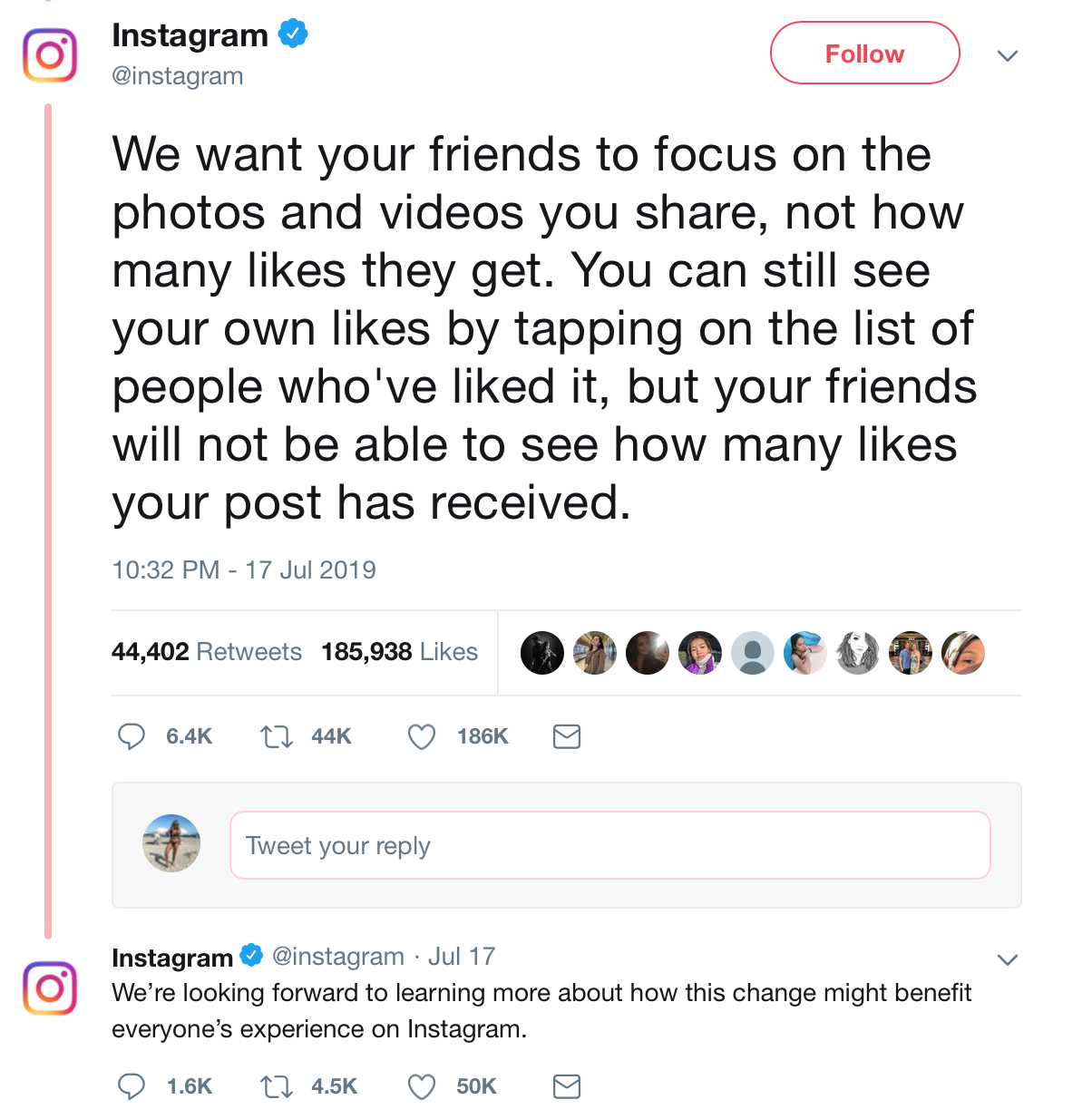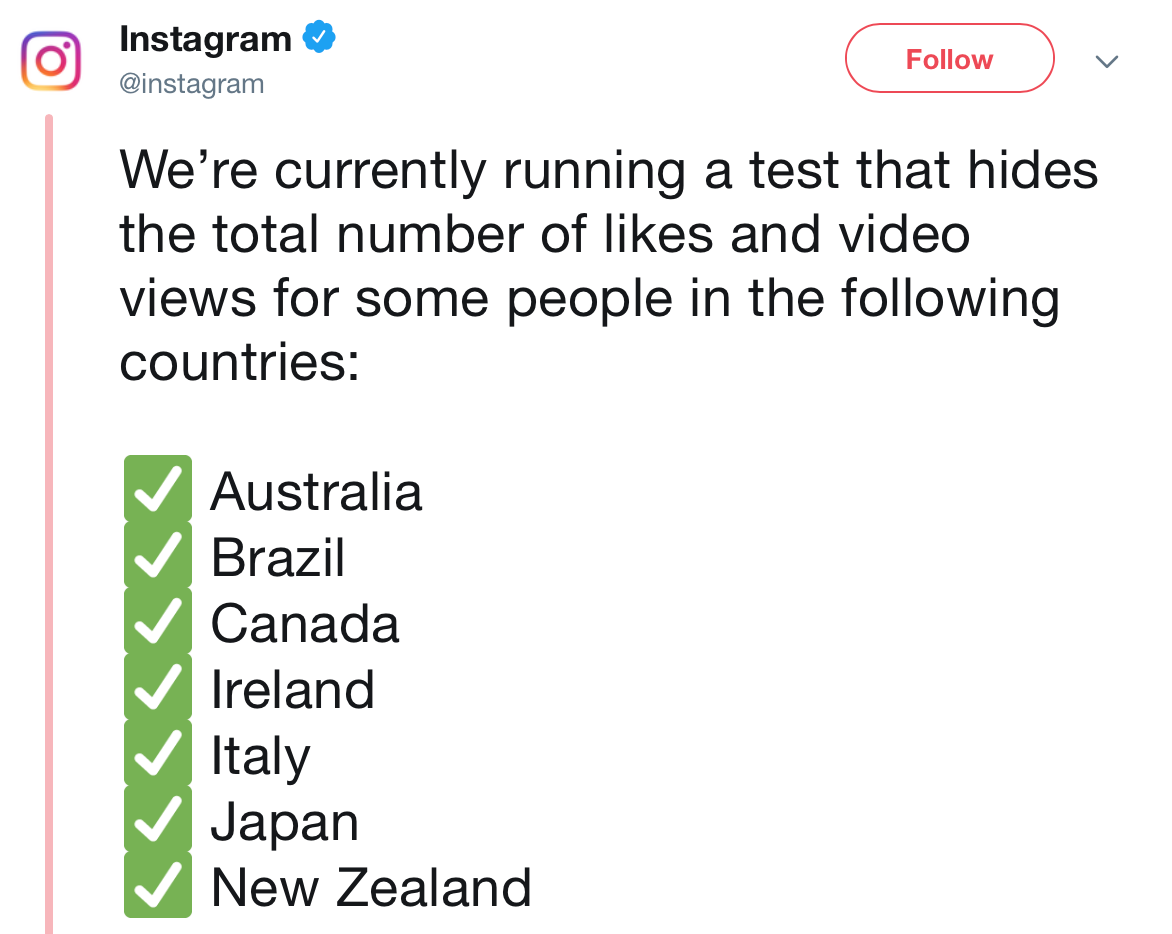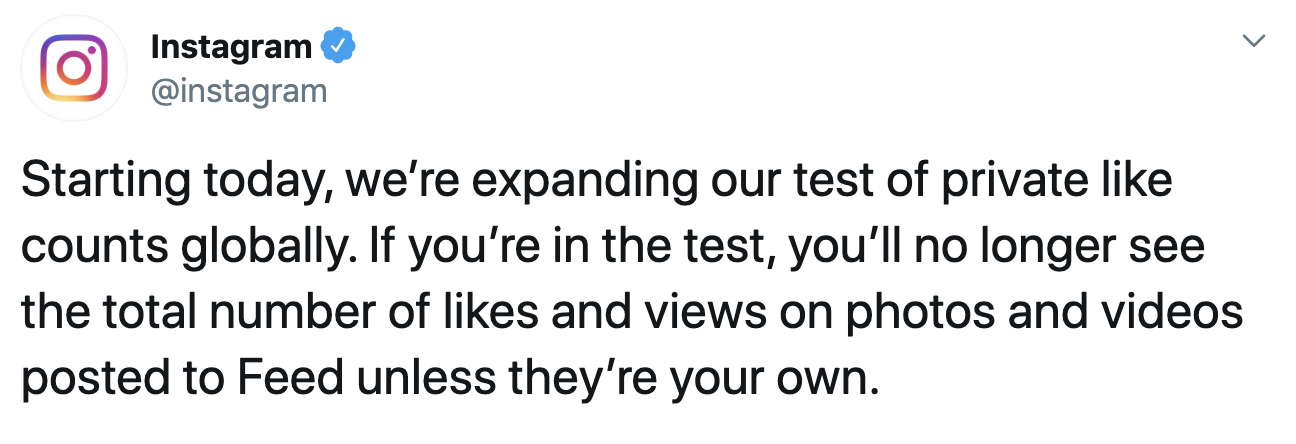Gossips about Instagram removing Likes are true. How come that social media is deleting their essence, likes, from the platform?
This is a huge decision for Instagram, they are literally turning upside down the core of the platform, and this will affect directly not only regular users but also brands and influencers whose jobs depend 100% on Instagram. Taking into account the magnitude of the change, and the fact that Instagram has over 1000.000.000 monthly active users, they are taking a hard look at this before taking the official decision.
Let's take a peek at Instagram's process of validation of this approach. If you're not familiarized with the concept of validation, take a look at our post about early validation that will clear up the concept for you.
Validating is making sure that your idea, that may be a product, feature, service, etc, will be successful before even launching it. Planning, developing and executing an idea requires money, time and energy, so if you validate your idea before all this, you may be saving all these resources.
Plus, in this case, not validating would risk losing one of the most powerful and important social media platforms on the planet!
Ok... So Instagram came up with the idea of deleting the number of likes from the platform for 4 reasons:
- It's proven that likes are not good for mental health, especially in youngsters.
- By deleting likes they would be diminishing fraud (such as like selling, fake profile bots, etc).
- It will motivate people to post relevant content. The relevance of the accounts won't be the number of likes they have, it will be the value of their content. Instagram doesn't want influencers, they want creators.
- Another theory is about the Ad Business. Maybe Instagram wants to prioritize stories over feed posts. Why? Because stories go faster, you see many more stories than posts in the same amount of time. This means they can show you more Ads, and remember, Ads equals money $ for Instagram.

So Instagram detected these problems & opportunities and wanted to make a change. After probably analyzing every alternative, they decided to go with removing the number of likes. But the process doesn't finish here.
Before implementing these changes, they had to validate that this wouldn't destroy their business. So they tested. It started in July, when they tested with some people in particular countries, such as Australia, Brazil, Canada, Ireland, Italy, Japan and New Zealand. People in these countries stopped viewing the number of likes and video views from posts of other people, but could view their own likes and identity of those who liked their posts. With this sample, Instagram was evaluating and measuring the impact of this change.

Seems like this first stage of validation went good, but it was not enough to extrapolate it worldwide. Therefore, they are right now in the second stage of validation, this time worldwide. They used another sample made up of random people around the world. This group of people is not able to see the number of likes, but people who are not on the sample can. For example, at our office, two out of ten people can't view likes.

Many people claim that they are already getting fewer likes and less engagement in their posts, which pushes their post down in Instagram's algorithmic feed. Kate Weiland, a Canadian influencer, said to Insider that without likes it's very difficult for influencers to understand what content is valuable for their audience. On the other hand, others claim that Instagram users will start posting more creative content, leaving aside the fear of not being accepted.
I guess in the next few weeks we'll get to know the feedback Instagram had from this early test, whether they do or don't fully implement the change.
Whichever their outcome is, it's very interesting to understand how these huge and powerful companies give such importance to the validation process and are not afraid to test with actual users. They clearly understood that failing early is succeeding!

